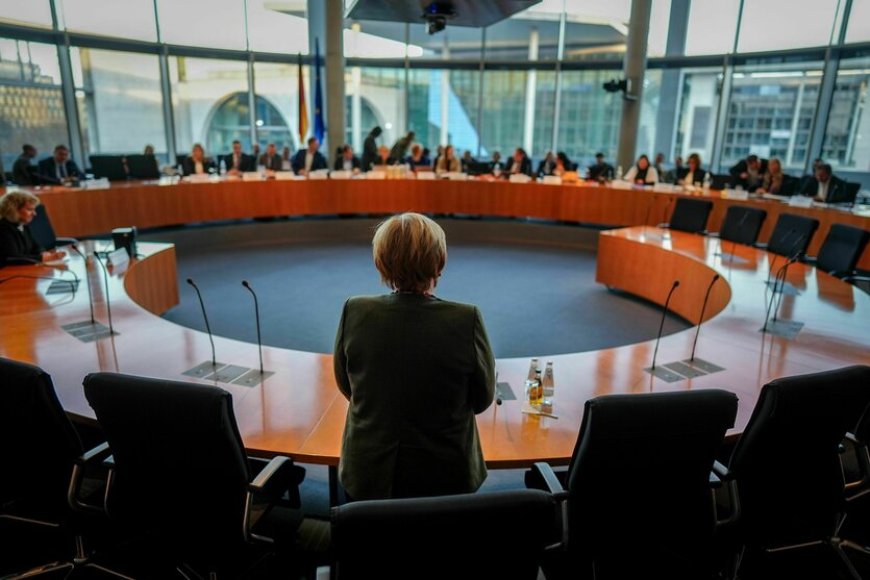The Protocol of Failure
The Afghanistan Inquiry Committee presents its final report. It becomes clear that Germany has long turned a blind eye to the problems on the ground.

The chaos now has at least a page number: The committee of inquiry into the withdrawal of Germans from Afghanistan presented its final report on Tuesday. On 1,410 pages, it describes the fiasco, the images of which went around the world in August 2021: with people trying to save themselves from the Taliban's renewed takeover of power on the wings of planes taking off. The chairman of the committee of inquiry, SPD politician Ralf Stegner, explained at the presentation of the report that NATO should have questioned its mission objective more critically over the 20 years of its engagement.
The parliamentary committee of inquiry began its work about two and a half years ago. The aim of the committee was to analyze the decisions made by the federal government between February 2020 and the end of the military evacuation mission in Afghanistan at the end of September 2021.
On February 29, 2020, the then administration of President Donald Trump sealed the withdrawal of US troops with the Taliban without attaching conditions to this withdrawal or coordinating with NATO partners. "The Taliban thus became a government in waiting," Stegner said.
But this was not perceived that way in Berlin for a long time and the withdrawal of the Germans and their local staff was therefore not planned well in advance. "The Doha agreement was a turning point that sealed the Taliban's seizure of power; everything else was wishful thinking," said the deputy chairman of the committee, CSU politician Thomas Erndl.
Merkel spoke of "terrible failure"
In recent years, the committee has heard 111 witnesses and analyzed more than a hundred gigabytes of files from emails and conversation transcripts. The result: sluggish administrative processes, a lack of human understanding for the fate of local staff and a policy that sometimes lacked the will to act prevented the federal government from taking effective action in the weeks before the Islamist Taliban took power in Kabul.
At the end of the long list of those interviewed in December was Angela Merkel (CDU). In the witness stand, the former Chancellor described the operation as a "terrible failure". "We, the international community, were fleeing from the Taliban.
Stegner saw the Chancellery as responsible for this failure. When presenting the report , he said that the Chancellery had been particularly silent at the meetings of the Afghanistan crisis team. Green Party politician Sara Nanni also criticized this. "The problem is that there was a lack of political leadership."
It became clear early on in the committee of inquiry, when interviewing employees from the Ministry of the Interior, the Ministry of Development, the Foreign Office and the Ministry of Defense, how much the agencies remained stuck in their own logic. Even during the chaotic withdrawal phase, they hardly deviated from their bureaucratic standards, for example to enable a pragmatic departure of the German local staff.
Federal elections were due to take place in September 2021, and the Interior Ministry of CSU man Horst Seehofer was keen to keep the number of local staff in Germany low - deportations to Afghanistan were appropriately suspended only on August 11, four days before the fall of Kabul to the Taliban.
Stegner said that at the time of the withdrawal, “bureaucratic standards similar to those in a land registry office” were in place.













































